Berea Community Learning Farm

Berea, Ohio is considered an "inner ring suburb" of Cleveland. People move there for the great school system and inexpensive housing. Many residents are low income or otherwise underserved, so the Community Learning Farm provides a huge benefit for the city's population.
Joseph LaPalomento is Chief Farmer of this thriving organization, where people can rent a garden plot for a nominal price, or even for free if needed. The organization owns a large hoop house, which extends the growing season to 10 months. The hoop house needed some new plastic covering this year, and Joe applied for a Gardening Know How Community Garden sponsorship. Our team chose this garden for a sponsorship because it's a wonderful example of the community gardening concept, as well as an outstanding source of education and food for some of the people who need it most.



The fenced 3/4 acre garden has various sized plots divided by stakes. There are smooth grass strips between the rows for walking and for wheelchairs, and special raised beds near the gate that are high enough for those who need to stand. Berea residents who sign up for a garden plot here have everything they need to grow fresh food for their families. Not only is each gardener given a dozen or so vegetable starter plants; there is rainwater collected in massive 1200 gallon rain barrels, shared access to tools, organic soil amendments and mulch and, maybe most importantly, orientation and education from "Farmer Joe." Youth plots, individual plots and family plots, all highly affordable, with consideration for those who have less.
How It Got Started
As with many community projects, this garden had some fits and starts as it blossomed into its present productive state. Eight or nine years ago Lori Hanson, a resident of Berea who was earning her associates degree in agriculture, decided to start a community garden as her second year project.
With volunteers and money from city organizations, the vacant land that at one time been the home of an elementary school, was leased to the project for one dollar. Early on, the gardeners tried their hand at planting and selling garlic and other vegetables, but that didn't work out as a community effort. They decided to rent garden plots and share Lori's knowledge to start their own gardens. Securing a grant from the USDA for the hoop house, volunteers prepared the site for a 72 foot "high-tunnel," which was a new learning experience for everyone.
Joe LaPalomento, who had grown up around vegetable farming got involved. Joe had attended Rutgers Agricultural School for pre-veterinary medicine, was now retired, and he and his wife began putting their time and energy toward the community garden, helping bring it to the flourishing state it now enjoys.
Local Resources and Education
Joe LaPalomento made some changes, improving the gardening experience for the gardeners. He worked to develop free resource channels in the community-- leaves delivered from the city in the fall, wood chips obtained from trees that the city cut down, and a local riding stable that happily delivers horse manure. These are used yearly to add compost to all the gardens, and are available to plot holders during the growing season.
Gardening tips, videos, info and more delivered right to your inbox!
Sign up for the Gardening Know How newsletter today and receive a free download of our most popular eBook "How to Grow Delicious Tomatoes."
Like many community projects, when a few people began talking to a few others, the garden grew and the folks involved began help one another. Over time other organizations, such as Boy Scouts and Girl Scouts became involved, teaching younger kids how to garden and helping with structural improvements, like building raised beds.
The educational aspect of this project has grown substantially. Joe helps mentor at-risk boys through an organization called Boys2Men in exchange for some volunteering. The Community Outreach division of the Berea Police Department uses the gardens to connect with the citizens. Many of Berea's community members help and volunteer in the gardens in exchange for education on sustainability, plant science, animal and nature science and of course, learning how to grow organic vegetables.
The Berea Community Learning Farm conducts educational outings with grade school kids, which are usually half-day events. The Baldwin Wallace College nursing program and the environmental science programs also utilize the gardens and the Organization's expertise.
The Results
The results of such hard work by so many are that they're able to source what they need locally, use harvested rainwater to support the gardens and practice true sustainability while educating the community.
The project's primary goals are to:
- Provide a place where community members can garden organically
- To educate plot-holders about organic gardening and agriculture, and nutrition
- To educate children and adults about biology, agriculture, nutrition and stewardship of natural resources
- To assist low-income residents in establishing gardens in order to enhance their nutrition and health
Teaching others how to sustainably grow organic food is service to humanity at a very high level. Education is certainly a key component of this project. But perhaps the most remarkable accomplishment at the Berea Community Learning Farm is the 2000 pounds per year of organic vegetables that are delivered to Berea Outreach food bank, to residents who are financially challenged, to a local women's shelter and a nearby church.
If you love what Joe and his team of gardeners and volunteers are doing at Berea Community Learning Farm and you'd like to make a donation, click here.
Learn More About Our School and Community Garden Sponsorship Program
Every year, Gardening Know How awards $1,000 to 20 different, hand-picked garden projects across the United States and Canada. If your community or school garden has a growing, unmet need for more soil, seeds, fertilizers, building materials, or even just help getting the word out about your program, we're ready and willing to help you meet those needs. As community gardens and school gardening programs spring up all over, we're happy to do our part to help.

Caroline Bloomfield is Manager of Marketing Communications at Gardening Know How since 2019. A northwest native, she has resided and gardened in multiple zones in the U.S. and is currently at home in Eugene, Oregon. Writing and editing for various publications since 1998, her BA in American Studies from Southern Maine University includes an emphasis in English. She was raised in California by avid gardeners and continues to enjoy the natural world with an appreciation for the concepts of sustainability and organic care for the planet.
-
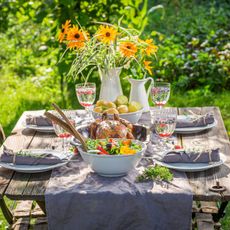 How To Grow Garden To Table: A Guide For Home Cooks
How To Grow Garden To Table: A Guide For Home CooksWhat could be better than a meal that comes directly from garden to table? Show off your gardening and culinary skills with the very freshest food.
By Bonnie L. Grant
-
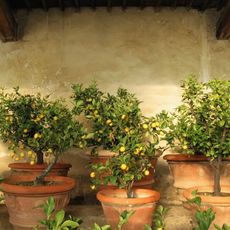 Want a Backyard Mini Orchard? Create Your Own Container Orchard
Want a Backyard Mini Orchard? Create Your Own Container OrchardEasier to care for in small spaces, a backyard mini-orchard makes sense for busy gardeners and juicy fruit is the reward.
By Teo Spengler
-
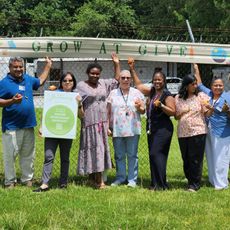 The Grow Garden at GIVE - 2022 Grant Recipient
The Grow Garden at GIVE - 2022 Grant RecipientThis alternative school in Georgia is using its garden to teach kids in all new ways.
By Caroline Bloomfield
-
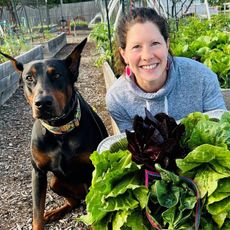 Common Ground Community Garden - 2022 Grant Recipient
Common Ground Community Garden - 2022 Grant RecipientThis Texas community garden has been getting people out of their apartments and into nature for 12 years.
By Caroline Bloomfield
-
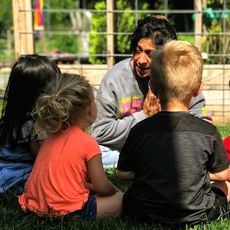 Valley Daycare - 2022 Grant Recipient
Valley Daycare - 2022 Grant RecipientBy Caroline Bloomfield
-
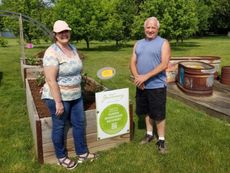 Douglas Discovery Garden – 2022 Grant Recipient
Douglas Discovery Garden – 2022 Grant RecipientBy Caroline Bloomfield
-
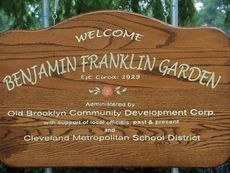 Ben Franklin Elementary School – 2022 Grant Recipient
Ben Franklin Elementary School – 2022 Grant RecipientThis hundred year old garden in Cleveland, Ohio is still going strong with a unique educational program for fourth graders.
By Caroline Bloomfield
-
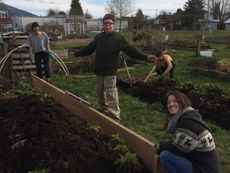 Kin Park Community Garden - 2022 Grant Recipient
Kin Park Community Garden - 2022 Grant RecipientRead about the small town in Vancouver that's bringing its people together with fresh produce and garden plots.
By Caroline Bloomfield
-
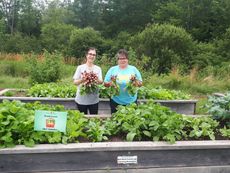 Elmsdale Community Garden – 2022 Grant Recipient
Elmsdale Community Garden – 2022 Grant RecipientThe Elmsdale Community Garden is striving to bring food security to rural Nova Scotia, one garden bed at a time. Read their story here.
By Caroline Bloomfield
-
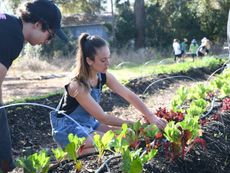 Gainesville Giving Garden - 2022 Grant Recipient
Gainesville Giving Garden - 2022 Grant RecipientThe Gainesville Giving Garden was born from a dream of freedom from food insecurity during the height of covid. Read its story here.
By Caroline Bloomfield